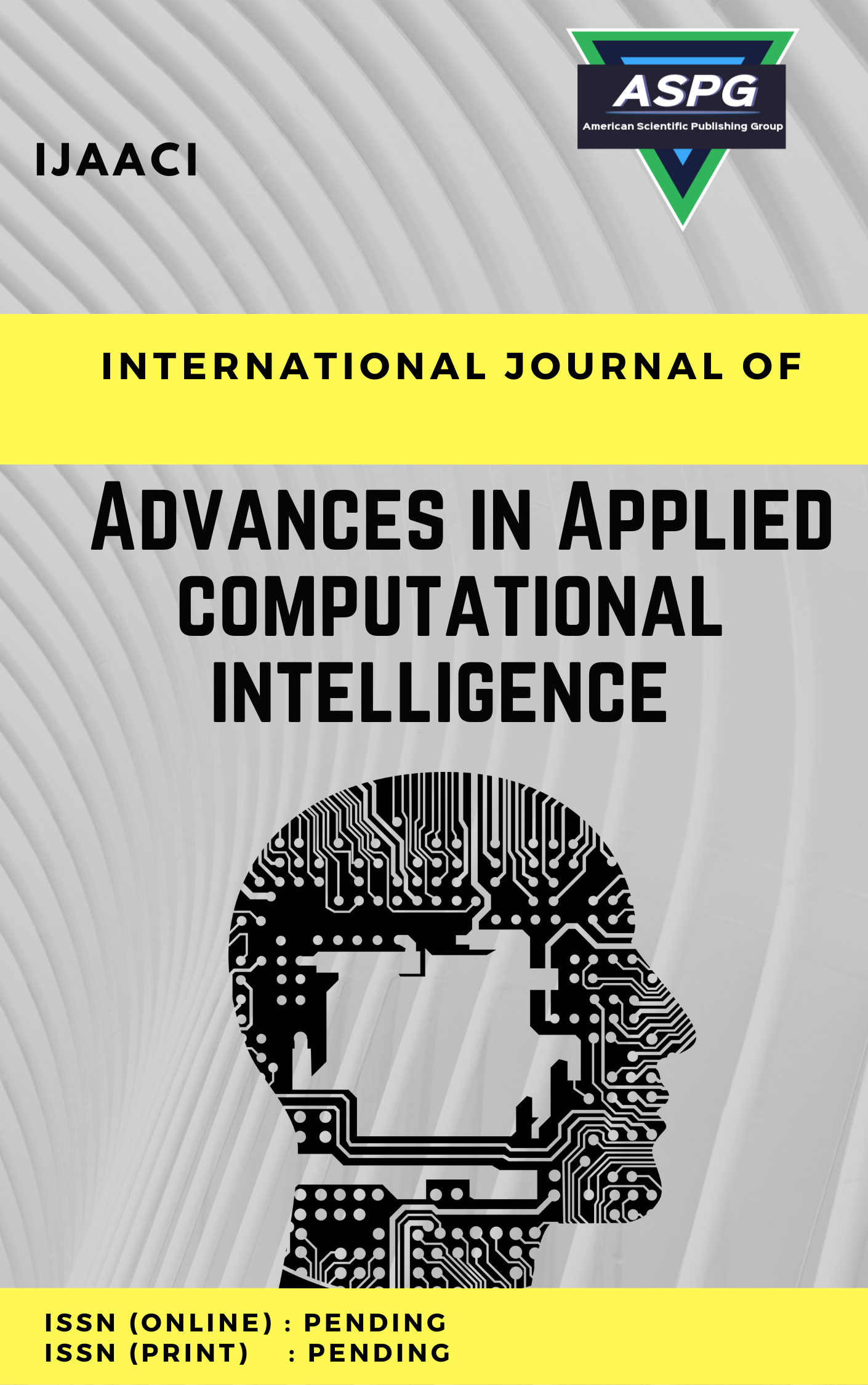

Volume 5 , Issue 2 , PP: 34-45, 2024 | Cite this article as | XML | Html | PDF | Full Length Article
Basheer Abd Al Rida Sadiq 1 * , Murhaf Obaidi 2
Doi: https://doi.org/10.54216/IJAACI.050203
With the large-scale language methods namely ChatGPT, there is a chance to explore the use of machine learning (ML) methods on ChatGPT-generated data for classifying healthcare data. Healthcare data classification gains more significance in extracting and organizing useful insights from the huge volume of medical data available. The ChatGPT-generated data has realistic and different healthcare-based text datasets that can be applied to training classification methods. ML approaches include supervised learning methods as support vector machines (SVMs), and random forests (RF), which can be implemented for classifying the healthcare data. The methods were trained on the ChatGPT-generated data that can be carefully validated and labelled with suitable classes related to the healthcare field. With this motivation, this article presents an automated healthcare data classification-using barnacles mating optimizer with a pyramid neural network (AHDC-BMOPNN) technique. The presented AHDC-BMOPNN technique examines the healthcare data effectually using an ML model with a feature selection process. Primarily, the AHDC-BMOPNN technique exploits min-max data normalization for scaling the input dataset. In addition, the butterfly optimization algorithm-based feature selection (BOA-FS) method is deployed for the selection of optimum feature subset. In this work, the PNN algorithm was utilized for the classification of medical data. Ultimately, the BMO-based hyperparameter tuning process takes place to boost the overall classifier results of the PNN technique. The empirical findings of the AHDC-BMOPNN approach was validated on ChatGPT generated dataset. The simulation values highlight that the AHDC-BMOPNN method and the diverse healthcare text data generated by ChatGPT enhance the ability to extract valuable insights and organize medical information effectively.
Healthcare data analysis , ChatGPT , Feature selection , Artificial intelligence , Machine learning , Metaheuristics ,
[1] Xue, V.W., Lei, P. and Cho, W.C., 2023. The potential impact of ChatGPT in clinical and translational medicine. Clinical and Translational Medicine, 13(3).
[2] Aydın, Ö. and Karaarslan, E., 2022. OpenAI ChatGPT generated literature review: Digital twin in healthcare. Available at SSRN 4308687.
[3] Sallam, M., 2023, March. ChatGPT utility in healthcare education, research, and practice: a systematic review on the promising perspectives and valid concerns. In Healthcare (Vol. 11, No. 6, p. 887). MDPI.
[4] Li, J., Dada, A., Kleesiek, J. and Egger, J., 2023. ChatGPT in Healthcare: A Taxonomy and Systematic Review. medRxiv, pp.2023-03.
[5] Islam, N., Sutradhar, D., Noor, H., Raya, J.T., Maisha, M.T. and Farid, D.M., 2023. Distinguishing Human Generated Text From ChatGPT Generated Text Using Machine Learning. arXiv preprint arXiv:2306.01761.
[6] Javaid, M., Haleem, A. and Singh, R.P., 2023. ChatGPT for healthcare services: An emerging stage for an innovative perspective. BenchCouncil Transactions on Benchmarks, Standards and Evaluations, 3(1), p.100105.
[7] Cascella, M., Montomoli, J., Bellini, V. and Bignami, E., 2023. Evaluating the feasibility of ChatGPT in healthcare: an analysis of multiple clinical and research scenarios. Journal of Medical Systems, 47(1), p.33.
[8] Liao, W., Liu, Z., Dai, H., Xu, S., Wu, Z., Zhang, Y., Huang, X., Zhu, D., Cai, H., Liu, T. and Li, X., 2023. Differentiate ChatGPT-generated and Human-written Medical Texts. arXiv preprint arXiv:2304.11567.
[9] Wang, D.Q., Feng, L.Y., Ye, J.G., Zou, J.G. and Zheng, Y.F., 2023. Accelerating the integration of ChatGPT and other large‐scale AI models into biomedical research and healthcare. MedComm–Future Medicine, 2(2), p.e43.
[10] De Angelis, L., Baglivo, F., Arzilli, G., Privitera, G.P., Ferragina, P., Tozzi, A.E. and Rizzo, C., 2023. ChatGPT and the rise of large language models: the new AI-driven infodemic threat in public health. Frontiers in Public Health, 11, p.1567.
[11] Mageshkumar, N. and Lakshmanan, L., 2023. Intelligent data deduplication with Deep Transfer Learning Enabled Classification Model for Cloud-based Healthcare Systems. Expert Systems with Applications, 215, p.119257.
[12] Hoang, L., Lee, S.H., Lee, E.J. and Kwon, K.R., 2022. Multiclass skin lesion classification using a novel lightweight deep learning framework for smart healthcare. Applied Sciences, 12(5), p.2677.
[13] Li, J.P., Haq, A.U., Din, S.U., Khan, J., Khan, A. and Saboor, A., 2020. Heart disease identification method using machine learning classification in e-healthcare. IEEE Access, 8, pp.107562-107582.
[14] Azimi, I., Takalo-Mattila, J., Anzanpour, A., Rahmani, A.M., Soininen, J.P. and Liljeberg, P., 2018, September. Empowering healthcare IoT systems with hierarchical edge-based deep learning. In Proceedings of the 2018 IEEE/ACM International Conference on Connected Health: Applications, Systems and Engineering Technologies (pp. 63-68).
[15] Sahoo, K.K., Ghosh, R., Mallik, S., Roy, A., Singh, P.K. and Zhao, Z., 2023. Wrapper-based deep feature optimization for activity recognition in the wearable sensor networks of healthcare systems. Scientific Reports, 13(1), p.965.
[16] Mir, A. and Dhage, S.N., 2018, August. Diabetes disease prediction using machine learning on big data of healthcare. In 2018 fourth international conference on computing communication control and automation (ICCUBEA) (pp. 1-6). IEEE.
[17] Stephen, O., Sain, M., Maduh, U.J. and Jeong, D.U., 2019. An efficient deep learning approach to pneumonia classification in healthcare. Journal of healthcare engineering, 2019.
[18] Ali, F., El-Sappagh, S., Islam, S.R., Kwak, D., Ali, A., Imran, M. and Kwak, K.S., 2020. A smart healthcare monitoring system for heart disease prediction based on ensemble deep learning and feature fusion. Information Fusion, 63, pp.208-222.
[19] Iqbal, N., Jamil, F., Ahmad, S. and Kim, D., 2021. A novel blockchain-based integrity and reliable veterinary clinic information management system using predictive analytics for the provisioning of quality health services. IEEE Access, 9, pp.8069-8098.
[20] Qaisar, S.M., Khan, S.I., Srinivasan, K. and Krichen, M., 2023. Arrhythmia classification using multirate processing metaheuristic optimization and variational mode decomposition. Journal of King Saud University-Computer and Information Sciences, 35(1), pp.26-37.
[21] Liu, X., Peng, W., Xie, L. and Zhang, X., 2023. Optimization of a Multi-Type PMSM Based on Pyramid Neural Network. Applied Sciences, 13(11), p.6810.
[22] Li, H., Guo, H. and Yousefi, N., 2020. A hybrid fuel cell/battery vehicle by considering economy considerations optimized by Converged Barnacles Mating Optimizer (CBMO) algorithm. Energy Reports, 6, pp.2441-2449.